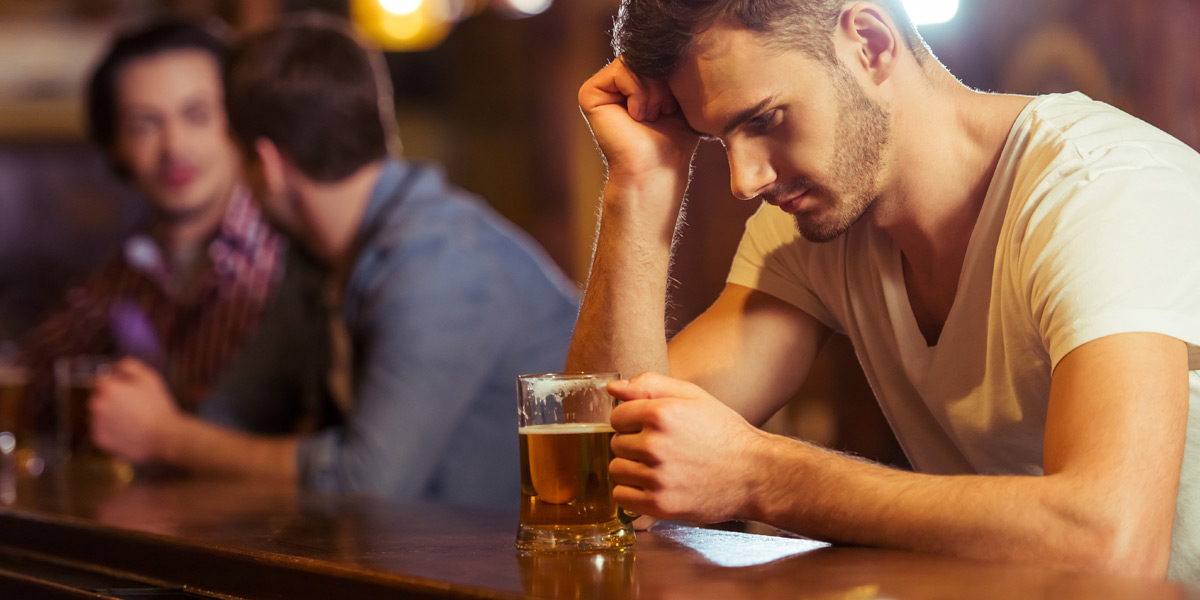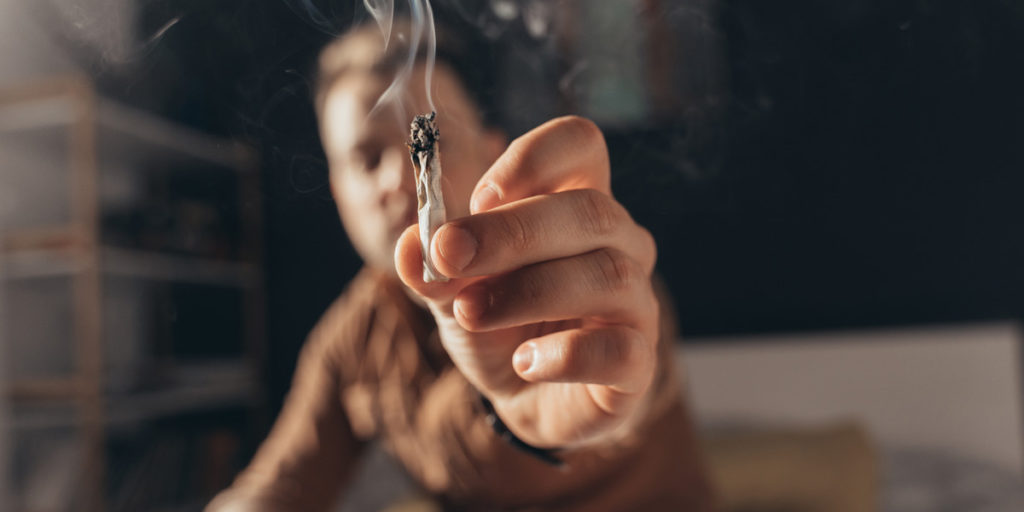What Are the Three Stages of Relapse?

Recovery is a journey with stages, not a straight line with easy answers; relapse has stages too— three to be exact. A substance use disorder (SUD), such as drug addiction or alcohol addiction, is a chronic disease, meaning there is no “cure,” only managing and coping techniques to maintain recovery and quality of life.
Relapse has become an accepted and expected part of the process. The National Institute of Drug Abuse (NIDA) estimates that the first year of recovery has the highest chance of relapse.
Even though relapse is common, it is dangerous, and prevention should be a significant focus during recovery. Relapse prevention programs have outlined three stages of relapse to help spot the early signs and symptoms of relapse and develop preventative measures for each stage.
The Three Stages of Relapse
Relapse starts happening long before a person physically picks up and uses their substance of choice.
Three recognized stages lead up to relapse.
The person in recovery, and the people in their support network, must be familiar with these three stages and how to reverse the course.
Relapse can be especially dangerous because the body’s tolerance has gone down. Many people think they can go back to using similar amounts to what they did before treatment, increasing the risk of an overdose.
When family members and people in recovery are familiar with how to spot the warning signs of a relapse, it is easier to avoid a full-blown backslide into using.
Emotional Relapse
The first stage of relapse is emotional relapse. This stage doesn’t mean that someone relapses because of an inability to handle emotions.
Most addicts aren’t thinking about using at all during this stage but instead are mentally setting themselves up for future relapse. A large part of the reason this stage goes unrecognized is denial.
People may be in denial about their risk of using again or the state of their mental health. People struggling with mental illness may have a tough time honestly assessing their feelings and warning signs of emotional relapse.
Some warning signs of emotional relapse are:
- Bottling up emotions, or not confronting feelings when they happen and letting things build-up
- Isolating or withdrawing from friends, family, and activities previously enjoyed
- Not going to meetings or therapy sessions
- Attending meetings or therapy but not sharing or paticipating
- Focusing attention on other people, other people’s prblems, or how other people are affecting them
- Poor eating and sleeping habits

Substance Abuse Relapse Assessment
There are three facets of self-care— emotional, physical, and psychological. Addressing the state of self-care can help stop emotional relapse in its tracks.
Everyone has different self-care needs, but a standard guideline used to check-in on how a person is doing is HALT:
H – Hungry: Have you been eating well?
A – Angry: Are there feelings you need to address and let out?
L – Lonely: Have you talked to someone supportive lately?
T – Tired: Have you been sleeping enough?
Some other questions you can ask yourself to assess your self-care are:
- “Are you being kind to yourself?”
- “Are you allowing yourself to have fun?”
- “Are you taking time for yourself to get caught up on life?”
- “Are you starting to feel overwhelmed and exhausted?”
- “Are you using positive coping techniques?”
Neglecting self-care long enough can make you start to feel anxious, depressed, restless, and irritable. Negative emotions like these cause people to want to drink or use drugs again to escape, leading to mental relapse.
Mental Relapse
In the mental relapse stage, the sober mind is at odds with the addicted mind. A person will want to continue their recovery; however, they consider returning to old habits to deal with their current problems.
It is essential to acknowledge that passing thoughts of using are normal in recovery, but it is a warning sign of mental relapse when the thoughts change or become intrusive.
Unfortunately, many people are embarrassed by thoughts of wanting to use again and feel like they are failing at sobriety. Out of a sense of shame or embarrassment, people won’t tell anyone they have these thoughts, isolating them and intensifying the internal struggle. The longer this state of mind goes on, the higher the chances of a relapse.
Some signs of mental relapse are:
- Craving drugs or alcohol
- Lying
- Coming up with scenarios when using would be acceptable, like vacations and holidays
- Rationalizing occasional or “once in a while” use
- Considering using a different substance than the primary on they are addiction to
- Glamorizing and romanticizing past drug use
- Minimizing the harm their using did in the past, and the consequences using again would have
- Seeking out people thev’ve used with, or that enabled their using
- Visiting places or situations that could trigger a relapse
- Planning a relapse

Help on How to Stop From Relapsing
It is still possible to prevent relapse if you are entering the mental relapse stage, and it is even more likely if there is already prevention planning in place ahead of time.
Some ways to stop thoughts of relapse include:
- Distract yourself from the craving. Most cravings pass in about 15 to 30 minutes. Instead of focusing on the urge to use, take a moment to do something that will feel positive and rewarding, like taking a shower, making a filling meal, or taking a walk to get some fresh air.
- Call someone supportive. If you have a sponsor or sobriety buddy, give them a call, tell them you are struggling, and let them help talk you through it.
- Attend a meeting.
- Think short-term. It can be overwhelming to think of an eternity never using again, so take a step back and focus on getting through the day without using. Deal with tomorrow when it arrives. The phrase “one day at a time” is popular for a reason.
- Make a list of all the positive things being sober has allowed you to do and enjoy.
- Address the self-care questions, and focus on taking care of your needs.
Physical Relapse
The final stage is physical relapse. Physical relapse includes taking steps to buy alcohol or drugs as well as taking them. The most common time a relapse occurs is when people think no one will notice if they are using, like at a holiday party or on vacation around other people indulging.
Some people will have a one-time “lapse” and immediately regret it and return to sobriety; others will descend into uncontrolled using. It can be dangerous to differentiate the two. If a one-time lapse goes unnoticed, it may reinforce the person’s misguided belief that they can use substances casually with no consequences and eventually use them again regularly.
Ideally, the right recovery program will have prepared individuals to identify situations that could trigger addiction urges and have exit strategies practiced to avoid or remove themselves from the situation.

Relapse Prevention
Relapse prevention is a strategy for reducing the likelihood and severity of addiction relapse.
Because staying sober is a life-long process, relapse and mistakes are bound to happen, especially in early recovery. Part of achieving long-term sobriety is recognizing the stages of drug and alcohol relapse to prevent it.
Cognitive Behavioral Therapy (CBT) helps reframe how you think about things and improve behavioral health to replace harmful habits with good ones.
Some strategies CBT uses to help people stay sober and avoid relapse are:
- Identifying and coping with high-risk situations. Working with a therapist to identify external and internal triggers, then practicing practical ways to prevent or overcome them.
- Patient empowerment. Encouraging you to participate in recovery and actively contribute solutions to problems as they arise. Therapists set small achievable goals and provide positive feedback, making long-term recovery seem less overwhelming.
- Lapse management. Therapists will prepare you for the possibility of a relapse, what to do, and how to evaluate what caused them.
- Cognitive restructuring. You will learn to change how you think about things and question preconceived notions about relapses and addiction treatment.
Relapse Is Not a Sign of Failure
People in recovery tend to have a lot of negative thoughts and feelings towards themselves when they fall off the wagon. It can be hard to overcome the feelings of embarrassment and failure to seek additional help and support.
Whether you have fully experienced a relapse and used again or recognize that you are going through the stages, it does not mean you have failed or that all hope is lost.
At Northridge Addiction Treatment Center, our experienced and compassionate staff know the struggles of recovery and leave residents equipped with the skills to manage the triggers and urges of relapse.
Our proven, evidence-based treatment programs integrate relapse prevention therapy to help every resident continue on their journey of lasting recovery even after they walk out of NATC’s doors.
Our admissions specialists are happy to answer any questions you might have. We can also confidentially verify your insurance, so the stress of affording treatment doesn’t have to be a factor.
Call NATC today to start your recovery journey on the right path and gain the tools to live a fulfilling and promising life.
Find Meaningful Recovery
Our caring and compassionate specialists are eager to help you comfortably navigate this journey to recovery. Our individualized treatment plan, programs, and therapies may be a perfect match for you or your loved one. Let us assist you in living the happy life you deserve. It starts with a phone call.




